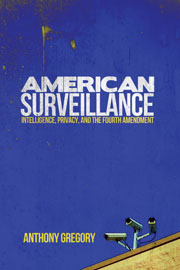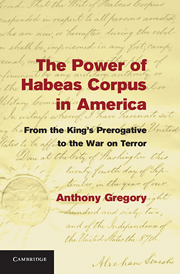Pat Robertson began publicly criticizing the drug war in December 2010, and he has become more vocal since. Unlike the vague critiques often heard from prominent figures—even Barack Obama has called the drug war a failure—Robertson’s insights have been precise, and consistent, and deeply-rooted. “We here in America make up 5 percent of the world’s population, but we make up 25 percent of jailed prisoners,” he noted in March, appearing genuinely moved by the issue. “I really believe we should treat marijuana the way we treat ... alcohol,” he told the New York Times. Beyond the practical argument, Robertson sees the moral dimension: “I believe in working with the hearts of people, and not locking them up.”
In light of his key role in the religious right, Robertson’s comments take on special significance. The man speaks to a particular strain of social conservatives, not straying from their rhetorical comfort zone even as he champions drug legalization for principled reasons. He even blames the left for a burgeoning police state: “Every time the liberals pass a bill—I don’t care what it involves—they stick criminal sanctions on it.”
Should “theocons” adopt a more tolerant view on drugs, it would shake the entire right-wing on the issue. They would be the last prominent faction to demonstrate skepticism. The American right has long had its share of drug-war critics. William F. Buckley articulately defended legalization on a half-hour PBS special in 1996. George Will has often explained the unintended consequences of prohibition, although he still falls short of calling for decriminalization. Barry Goldwater expressed skepticism toward the criminal-justice approach.
Neocons have either not cared much about drugs and other domestic matters or have sometimes embraced drug decriminalization as a nod to their social liberal side. Fusionist and libertarian-leaning conservatives have tended toward decriminalization. Right-wing talk radio, the information source for millions, has also featured many voices skeptical of drug laws, from the sensationalist Michael Savage to Jeffersonians like Mike Church. The common-sense center-right has often decried the futility of marijuana prohibition in particular.
Missing in the conservative approach to the issue has been an understanding of the grave threats prohibition poses to the social institutions that cultural conservatives, including the Christian right, hold dear. If Robertson foreshadows a coming shift in the Silent Majority’s sentiments, this void will finally be filled. Despite the prominent critics among their ranks, everyday conservatives have consistently revealed themselves in polls as more hostile to decriminalization than liberals and moderates. A socially conservative turnaround on the issue would change everything. Just as many moralists who championed temperance turned against alcohol prohibition after seeing the social destruction it unleashed in the 1920s, today’s social conservatives could play a defining role in ending drug prohibition.
The drug war embodies secular leviathan like few other government efforts. The federal anti-drug crusade began with Woodrow Wilson’s signing of the Harrison Narcotics Act in 1914, escalated with Franklin Roosevelt’s signing of the Marijuana Tax Act in 1937, and tyrannically expanded to cover previously legal psychedelics and other substances during Lyndon Johnson’s Great Society. Bill Clinton increased marijuana arrests and drug task force spending, greatly accelerating the Reagan-Bush drug war. Under Obama, the policies have once again enjoyed a boost: his 2009 stimulus bill included major hikes in drug enforcement spending that had dwindled under George W. Bush.
If alcohol prohibition qualified as the progressives’ greatest domestic triumph in the early 20th century, drug prohibition has achieved even more as a usurpation of traditional morality and the social order. Constitutionalism, states’ rights, subsidiarity, community norms, traditional medicine, family authority, and the role of the church have all been violently pushed aside to wage an impossibly ambitious national project to control people in the most intimate of ways. For years, the federal DARE program encouraged children to rat out their parents for minor drug offenses, an intrusion into family life all too reminiscent of Soviet Russia.
Prohibition-fueled gang warfare has not only inflicted violence upon the social fabric; the crime wave has also served as a rationale to weaken the very civil liberties that conservatives most cherish—particularly Second Amendment rights. Bloodshed on city streets attributed to the 1920s liquor trade spawned the National Firearms Act of 1934. Congress specifically targeted drug users in its Gun Control Act of 1968. The 1990 Crime Control Act focused on creating drug-free school zones, but semi-automatic rifles also came under its ambit. Even the 1993 Waco standoff, rationalized by the Clinton Justice Department as an anti-assault-weapons operation, started with search warrants dubiously directed at finding a meth lab. In the 1980s drugs had served as the excuse to carve out exceptions to the 1878 Posse Comitatus Act forbidding military involvement in domestic law enforcement. The radicalized grassroots patriots in the post-Cold War 1990s who saw national police power as a threat to their liberty, their guns, and their families should have recognized America’s drug laws as a principal culprit.
Today drug money finances not just domestic gangs but foreign thugs as well. In the last decade many reporters have commented on how opium profits have enriched the Taliban—a nearly unavoidable result of America’s drug policies, which keep narcotics highly profitable. But today the most conspicuous violent foreign threat comes from Mexico. The cartels, whose killing spree has taken tens of thousands of lives in just the last couple years, have shattered the peace on the border and become the subject of the Obama administration’s most notorious scandal. Some conservatives have wondered aloud whether the “Fast and Furious” program of arming Mexican drug gangs was intended to create an excuse to crack down on American gun ownership. Regardless of the ATF’s intentions, the drug violence has indeed served as a rationale to restrict American liberties, including the right to bear arms. But very little of this would be possible if these cartels could not fund themselves with the amplified profits that drug prohibition produces. (No wonder all of the conservative movement’s heroes of economic science—Ludwig von Mises, F.A. Hayek, and Milton Friedman—were unambiguous in opposing the drug war, on practical as well as moral grounds.)
Recent polls indicate that a slight majority of Americans is now open to legalizing marijuana. Somewhat surprisingly, residents of liberal California are less likely than the nation at large to support the idea, according to a USC Dornsife/Los Angeles Times poll, although Democrats and voters in the lefty Bay Area favor decriminalization in far higher numbers than Republicans and the rest of the state. Conservatives are still the main ideological barrier to drug liberalization.
But the tide may be turning. At a Republican primary debate in South Carolina last May, Ron Paul likened the freedom to use drugs to the freedom to worship according to one’s faith, a radical insight about the liberty of conscience usually heard mainly from proud proponents of psycho-pharmacological experimentation. Moderator Chris Wallace asked the Texas congressman whether using heroin was simply an “an exercise of liberty.” Paul responded with a rhetorical question: “How many people here would use heroin if it were legal?” He mocked the very idea of paternalistic prohibition: “Oh yeah, I need the government to take care of me. I don’t want to use heroin, so I need these laws.”
The audience erupted in laughter and enthusiastic applause. Many of Paul’s supporters sat in the crowd, but more important was the lack of booing from the more conventionally conservative attendees. In this Republican audience in a right-leaning state, some of the most radical arguments for heroin legalization fared surprisingly well. Even if today’s conservatives do not buy into all the reasons to end prohibition, they no longer find them as dangerous or worthy of ridicule as in years past.
Also in May, a survey conducted by Mason-Dixon Polling & Research found that 67 percent of Republicans wanted to see an end to federal medical-marijuana raids. President Obama’s policies are not only out of touch with his liberal base, they are far more draconian than what most conservatives want. On the issue of national power, this is not a completely new development on the right. Citing states’ rights, George W. Bush suggested he would put a stop to the raids in 1999. After becoming president, he stepped them up instead, but not nearly as much as Obama has done. According to Americans for Safe Access, the Obama Justice Department conducted 170 SWAT-style raids of medical-marijuana dispensaries between October 2009 and Spring 2012. Given his campaign promises to the contrary, Obama has “gone from first to worst,” according to Marijuana Policy Project Executive Director Rob Kampia. “There’s no question that Obama is the worst president on medical marijuana.”
The federalism argument against the raids has always seemed more appealing to conservatives than liberals. In 2005, the Supreme Court upheld the marijuana raids in Gonzales v. Raich in the name of preserving an expansive federal commerce power. Antonin Scalia joined the majority, but Clarence Thomas, Sandra Day O’Connor, and William Rehnquist dissented. Justice Thomas, the court’s most conservative member, issued the most stirring rebuke, which he grounded in a restrictive reading of Commerce Clause power: “If the Federal Government can regulate growing a half-dozen cannabis plants for personal consumption (not because it is interstate commerce, but because it is inextricably bound up with interstate commerce), then Congress’ Article I powers—as expanded by the Necessary and Proper Clause—have no meaningful limits.”
Tellingly, the Supreme Court’s opinion upholding Obamacare this summer cited the precedents of Raich many times. Dissenting conservatives on the court attempted to find a distinction between the two rulings, but many commentators noted the corner into which Scalia in particular had painted himself, viewing federal power as nearly unlimited concerning medical marijuana but restrained on health insurance. Thomas was right in Raich that a federal police power that can supersede state marijuana laws, bust down someone’s door, and jail him for growing a plant for personal use, faces no effective limits and is the very face of tyranny. The liberals who endorsed unmitigated federal power on Obamacare as well as on medical marijuana were being completely consistent. The logic of the drug war is the logic of the New Deal, national supremacy, and everything conservatives profess to hate about Obama-style governance.
Drug laws expose the tension within the conservative movement: devoted to localism and nationalism, freedom and law and order, today’s conservatives, if they are to mount a meaningful resistance to the unrestrained bureaucracy in Washington, D.C., must choose between their conflicting values. Many on the Tea Party right have come to regard the Bush-created Transportation Security Administration (TSA) as clumsy and despotic. They cling proudly to their guns and religion. They worry about their privacy in the face of a relentlessly growing central state. But it was the drug war that first shredded the Bill of Rights in modern times.
Public opinion has gradually been turning against the militarized Just Say No approach. Meanwhile, special interests like the tobacco and law-enforcement lobbies continue to put pressure on politicians to maintain the status quo. Democrats do not have the political will or capital to push for major changes. Perhaps Republican leaders—unafraid of accusations of being soft on crime, emboldened by a conservative movement increasingly skeptical of unlimited police power—are the ones most likely to lead the charge toward liberalization. This prospect leaves much to be desired, but for the first time in many years perhaps there is some hope on the horizon, and from an unexpected direction.
This article first appeared in the September 2012 issue of The American Conservative.








